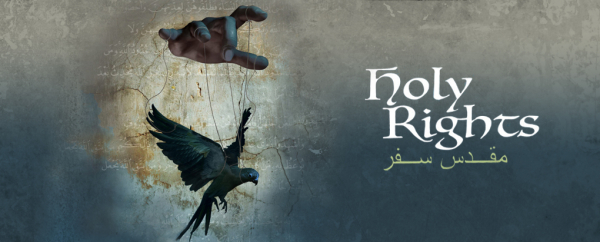|
If the newsletter does not display properly, please click here. |

|
|
|
|
|
Dear friends and colleagues, Even though we are in the middle of Quiet August in Leipzig, we have some announcements for you: A Publication by our two directors, a new Bulletin Contribution and a Call for Papers. |
|

|
|
|
And a friendly reminder that – finally and for the first time in a while – our Screening Religion series is back on the big screen tonight at 7 p.m. (CET) LIVE at Cinémathèque Leipzig: We will be showing the documentary “Holy Rights” which deals with the politically highly sensitive and in India extremely controversial issue of Muslim family law, especially the practice of triple talaq. The film will be shown in Urdu with English subtitles. After the film there will be a discussion with our Senior Research Fellow Anindita Chakrabarti. We recommend arriving early to secure a seat and to be informed about relevant admission rules on site. Cinémathèque Leipzig at nato | Karl-Liebknecht-Str. 48 | 04275 Leipzig
Anja & Lucy |
|

|
|
New Publication: Monika Wohlrab-Sahr & Christoph Kleine on “Historicizing Secularity: A Proposal for Comparative Research from a Global Perspective”We would like to draw your attention to the latest publication by our directors Monika Wohlrab-Sahr and Christoph Kleine: Their article on “Historicizing Secularity: A Proposal for Comparative Research from a Global Perspective” outlines a research agenda that focuses on a specific – but fundamental – aspect of secularization, namely the historicization of conceptual distinctions and institutional differentiations between the religious and the secular. They employ the heuristic concept of ‘secularity’ to refer to these demarcations, and argue that secularization studies should give due consideration to their historical predecessors in various world regions. They introduce two different religious and societal settings in the medieval period – Japanese Buddhism and Islam in the Middle East – in order to illustrate the divergent ideational and structural backgrounds to the development of relations between the religious and the secular. You find the complete text in our member area. Wohlrab-Sahr, Monika, and Christoph Kleine. “Historicizing Secularity: A Proposal for Comparative Research from a Global Perspective.” Comparative Sociology 20, no. 3 (2021): 287–316.
|
|

|
|
New Bulletin Entry: Lena Dreier on “German Imams in the Making”We would like to point to the latest entry in our KFG Bulletin: In her article on “German Imams in the Making” our Associate Member Lena Dreier presents the Islamkolleg Deutschland, a university training site for Imams and the first academic institution in Germany to offer such training. The text reflects on the effects the establishment of an academic Imam training in Germany has in different areas of tension: Between various Islamic theological branches, between political and religious claims, between co-operation and religious autonomy and within various European models of training Imams and new Islamic knowledge. Our Bulletin gives the opportunity to comment on current political, social or cultural events and developments from the perspective of Multiple Secularities, to place them in a broader context through our expertise or to present alternative perspectives. If you wish to make short, journalistic style contributions to the Bulletin, please contact Johannes Duschka.
|
|

|
|
Call for Papers ”The Russian Orthodox Church after the post-soviet transition”For a special issue of the journal Religions, Kristina Stoeckl, Head of the Department of Sociology at University of Innsbruck and Dmitry Uzlaner, Associate Professor at The Russian Presidential Academy of National Economy and Public Administration, invite analyses and contributions that explore the multiple and contradictory roles of the Russian Orthodox Church inside Russian society and politics in the last thirty years. Scholars are encouraged to engage with the idea that the period of post-Soviet transition for the Russian Orthodox Church is indeed “over”, and to push the boundaries of the analysis of Russian Orthodoxy beyond the categories of post-Soviet revival or desecularization. This open-access special issue is co-sponsored by the European Research Council. Manuscripts should be submitted online by registering and logging in to this website. Research articles, review articles as well as short communications are invited. A guide for authors and other relevant information for submission of manuscripts is available here.
|
|
|
If you have any content that you think suits the purpose of the weekly, please feel free to send it to us at multiple-secularities@uni-leipzig.de. |
|
|
Kolleg-Forschungsgruppe "Multiple Secularities - Beyond the West, Beyond Modernities" Nikolaistraße 8-10, 04109 Leipzig Mail: multiple-secularities@uni-leipzig.de |